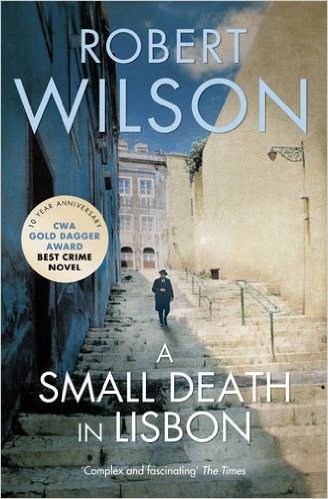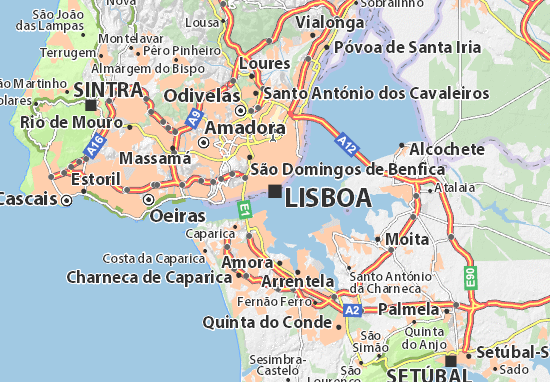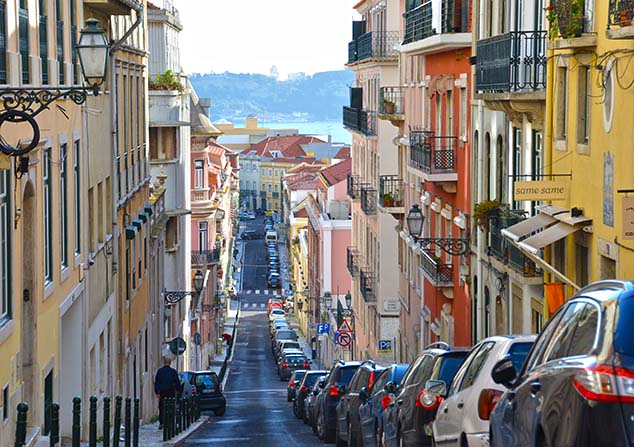I break my rule and write about a book I disliked, doing so in part to crystallise what it is that I did not like about, and why I tried so hard to read it.
I tried to read this book years ago, and was recently moved to try again since my interest in Portugal was kindled again a few months ago by reading about the Carnation Revolution of 1974 but my efforts to find Portuguese novels that I might like have failed.
Yes, I have read some by that Nobel Prize winner, José Saramago, but found them desiccated, didactic, and dull. In short, lifeless. They told me nothing about Portugal or any Portuguese.
Reviews of lists of Portuguese novels on websites did not help either where even the krimis were described by the deadly term ‘surreal’ that is code for incomprehensible and self-indulgent which some mistake for creativity. On such lists I found ‘Ballad of Dog’s Beach’ by José Cardoso Pires which I read and reviewed elsewhere on this blog. It did not inspire me to choose another title from such lists. As an indicator of nonsense the term ‘surreal’ is as reliable as the label ‘post-modern.’
Robert Wilson is routinely accorded the accolade of a best selling author on the covers of his many novels from major publishers. All hail. The reviews in credible sources are respectful, if not enthusiastic. Knowing that I know nothing, I tried again.

It has a split story line, then and now with some in-between, and the reader, I guess, is supposed to be puzzled about how they come together. Me, I just assumed some hocus-pocus would bring them together. I cannot abide this approach to story-telling because it puts responsibility on the reader to make sense of what is written. This joke is not for this folk.
The respectful reviewers say it offers a travelogue of Lisbon and that is what enticed me to read the book both times. So on I went, screen-by-screen on the Kindle. My dentist does not approve, all that gnashing, grittimg, and grinding of my teeth which will undo his good work. With the iron discipline for which I am famed, I quit — again — at 61%, according to the Kindle.
Here is what I found as I made my way to that 61%.
We have Klaus Felsen a German businessman forced to go to Portugal in 1941 to buy rare industrial metals for the Nazi regime and to try to prevent the British from getting them, too. It seems he is the only man for the job since he speaks Portuguese, learned from a few weeks with a Brazilian woman. Ah huh. Fluent no doubt. It is February 1941, and there is one reference to the Eastern Front, though there was not one until 22 June 1941. The hindsight is all to evident throughout.
Sometime in the 1990s we have world weary inspector Zé Coelho, who mouths gratuitous criticisms of the society he serves, and despises those who cooperated with the late and unlamented Salazar regime, a group that would have included most of the country. He wears his alienation on his sleeve. Everyone he meets is awful. Especially those with money. So it goes. When figures in police procedurals engage in this kind of cheap cynicism, my supposition is that the reader is to take it as social criticism. Ever the rebel, I take is as cheap cynicism.
There is a lot of coming and going in Lisbon of the 1990s, and I liked that. I used a Google map to follow some of it on the iPad. That kept me going as long as I did.



The book also features much sex. Both of the protagonists, Felsen and Coelho, are irresistible to every woman they pass. There is enough detail to satisfy a gynaecologist.
Felsen, the good German, also goes in for murder and torture, and these deeds are also lovingly described from anatomy textbooks: wires to the genitals of the helpless victim. No electricity, just wires. The thugs, these he kills with rocks.
Time passes in the back story from 1941 and Felsen remained in Portugal when the war ended. He gets even with all his enemies, in part, because of the love of Eva. Who? [Sound of violins over the screams of his victims,]
The Portuguese peasants Felsen enslaves to his smuggling operation are described in bestial terms that must give some armchair readers a frisson. Me, I thought how simple-minded such characterisation is. For a dose of reality read the nature poems of John Clare (1793–1864) a day-labouring peasant just like those in this story. If people do not live in cities and read books, they cannot be as fully human as … the author, the reader, the editor. Thugs live and work on Bond Street, too, and even in some universities, I am told.
The preoccupations with sex and money can be readily interpreted in two ways. The first is ‘give them what they want.’ If it sells, write it. Here we may see the hand of the publisher pushing the author along. The other is the projection of the author’s own fantasies onto his characters. Pick one.
There are no compensations in the prose. Much of it is workmanlike and gets us from A to A1. However, there is far too much that is overwritten. ‘Overwritten?’ one might ask. ‘What does that mean?’ Here are a few examples;
‘her knees looked tired’
‘an in articulate shriek’ from a closing door
‘an enclosed man’ who was waiting in the alley
his ‘breath was cigar streaked’
she rose on ‘strong legs’
the ‘walls drank in the evening light’
the school girls began an ‘elephantine dancing’
There are many, many more examples of this overwrought and meaningless prose. I just stopped highlighting them on the Kindle. Each time, this slow wit, had to read the sentence twice in the forlorn hope that there was a point to the prolix prose. Nope.

When I gave up I did take a look at the comments on GoodReads and was once again confirmed in the conclusion that it is pointless using that as a reference. The narcissism (look it up. Mortimer) of many comments allows me quickly to skip most entries, and the others read like support of relatives.
Nota Bene. We watched two episodes of the ‘Falcone’ krimi television series derived from another series by this same Robert Wilson set in Seville and found them gratuitously anatomical in the violence for no other reason than to get a restricted rating to make naive viewers think they were getting something hot. While we liked the travelogue of Seville, it was not enough to put up with the plucked eyeballs and roasted human flesh. The effort to shock is so adolescent.
I hesitated a long term before publishing this, but decided to get it out the door. Reading the imbecilic reviews on GoodReads stimulated me to add my two cents.
****
What I would like would be a krimi set in 1974 as the Carnation Revolution unfolded and in the heady-ing and confusing days that followed, catapulting Field Marshall Antonio de Spinola to the head of a committee of national salvation and driving the eternal Salazar regime into exile.
Perhaps such a book exists but I have not yet located it. The dictatorship in the person of President Marcello Caetano refused to abdicate to the upstart captains who led the uprising, and insisted on entrusting the government to a high ranking officer who, of course, had also to be acceptable to the upstarts. There was only one candidate, Spinola, whose public and private criticisms of the regime were known even if uttered sotto voce and published abroad. He did not want the job, the captains did not choose him, and Caetano did not want to concede, but the hour called the man.
Enter Spinola, pulled from one side and pushed from another. The captains wanted a quick result before their tissue thin conspiracy unravelled so they accepted Spinola as the only senior figure they could tolerate. He took on the thankless task as a last service to the country. No biography of him is available in English, or I would turn to that.
If a prospective writer wants the job, here are a few tips.
Make it linear. Have a protagonist who is not the centre of attention but a prism of others.
Also please emphasise Lisbon as a character in the story, not just a backdrop, its hills, it redolent history, the balcony flowers, the worn steps, its narrow streets, the ubiquitous churches, the funicular, the prayer apses on the twisted streets, the allure of the Azores, the stifling shroud of an ancient Catholicism, and the repression that hung over everything, the secret police, mysterious disappearances, political prisoners, the nearby Spanish border and the sclerosis-ridden dictator still crouched behind it, and the exiles in Brazil broadcasting back to Portugal.
Remember also that there were Portuguese military officers, serving and retired, in 1974 who had been volunteers in the Spanish Blue Division with the Nazis at Leningrad, including Spinola himself. Most of all, remember the three colonial wars Portugal was engaged in at the time in which Spinola alone had secured victories and made peace. Add the pirate attack by Portuguese exiles on the cruise liner the Santa Maria a few years earlier. In the larger environment there is the Cold War and the developing European Union. Rich pickings.
In the foreground perhaps the tension might spring from bringing together an odd couple, say an enemy of the regime with a defender, and each discovers something of value in the other. The stiff devout old guard police investigator who had done military service in Africa teamed with a youthful critic, maybe a journalist. The journalist discovers the police officer is serious and just what he seems to be, simple and honest, not a perverted pederast hypocrite. The officer discovers the journalist is a patriot who wants to elevate Portugal not a slavering communist set on destroying the country and raping nuns.
There are plenty of incidents to choose from, even before the radio music signalling the rebellion, and then later the military counter-coup, the subsequent communist effort to seize power as Lenin did in October 1917, the democratic descent into confusion. All this was in the cities, while in the countryside life continued to follow the rhythm of nature. Or did it? Maybe not on the Spanish border. Maybe not on secluded coastlines where small boats might land unobserved, perhaps from Brazil.
Add to this the reaction of Big Brother in Spain. Franco was still a factor, catatonic though he was.
I have watched some of ‘Capitães de Abril’ (2000) on You Tube without the benefit of English subtitles. Earnest, this I could see, but lacking in tension to this distant viewer.
Skip to content
